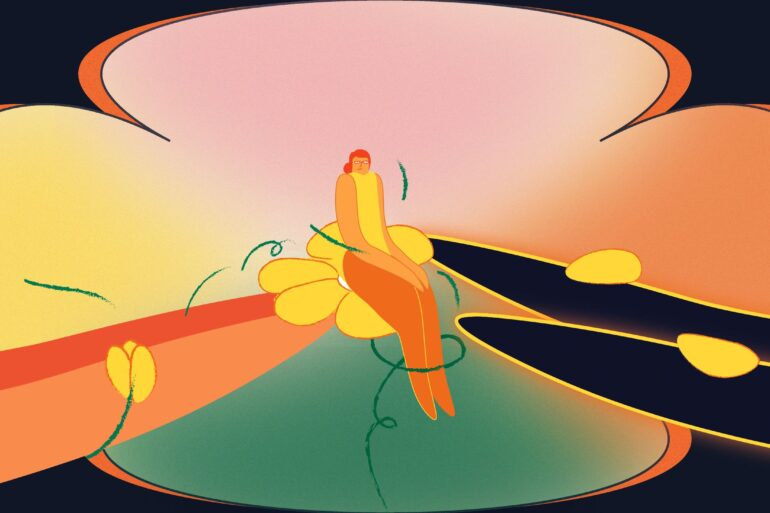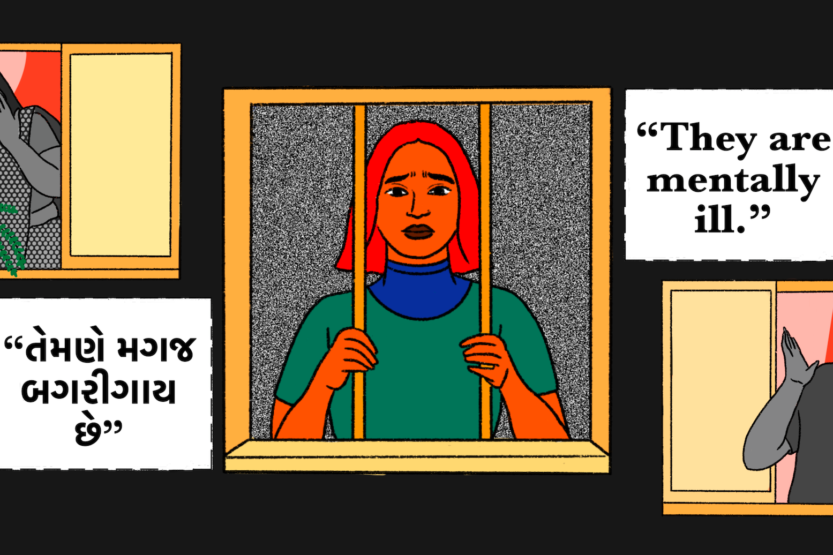Where are Londoners meant to go to find the best restaurant recommendations now that Eater London has ceased publication?
For recommendations in North London, in Camden and Islington, I could do worse than asking economist Ha-Joon Chang.
He’s currently keen on plant-based Chinese restaurant Vegan Planet. “It’s really really good,” says Ha-Joon. “The Chinese have a talent with texture,” he adds; they have this duck pancake dish he likes where they even simulate the crispy skin.
The week before, Ha-Joon was enjoying dinner at Azerbaijani restaurant Land of Fire in King’s Cross – “I always thought Azeri food was basically Persian, but there are all these interesting Russian influences” – and now it’s lunch at Café Palestina in Kentish Town: black tea with sage for Chang; Arabic coffee for me; hummus, baba ghanoush, olives, tabbouleh and as much flatbread as we want.
We’re meeting to discuss Ha-Joon ’s new book Edible Economics: A Hungry Economist Explains the World, an accessible introduction to his economic theories via the medium of food.
This isn’t a book about the economics of the broken global food system. Rather, it’s an antidote to the economic myths articulated by defenders of an unbridled free market, provided via the scenic route.
At a restaurant in Washington DC, Ha-Joon’s first taste of gumbo with okra – a plant brought to the Americas by enslaved people from West Africa – becomes the starting point for exposing the falseness of any equivalence between capitalism and freedom.
The development of capitalism in the United States is deeply intertwined with unfreedom in the form of slavery, from the vast importance of enslaved labour for cotton and tobacco as enriching exports to the use of enslaved humans as capital collateral on mortgages, which was important for the development of the financial sector.
Stories of eating glossy black bean noodles, slurping piña coladas on the beach, and the childhood pleasures of illicit M&Ms – literally, since they were only available on the black market during Ha-Joon’s early life in South Korea – lead us to other surprising places, from a lesson on entrepreneurship as a collective endeavour to a corrective on misleading ideas about post-industrial society.
This is an invitation to eat our economic theory greens. It’s a set of simple, urgent explanations of what Ha-Joon sees as wrong with the neoliberal consensus that has shaped our societies over recent decades, and an attempt to remind us that nothing about these conditions is inevitable, while also giving us the tools for articulating why.
For Starters
“It wasn’t entirely clear where the world was going to go,” says Ha-Joon, discussing economics in the 1980s. “You had all these experiments with neoliberalism in the US and the UK, but if someone had said that this would be the trend for the next 40 years, probably a lot of people would have disagreed.”
An economics student in South Korea at the time, Ha-Joon certainly wasn’t absorbing much of this ideology. Nor were the lessons of mainstream economics classes at the university particularly salient.
“I, and many of my friends, just couldn’t take it seriously,” he tells me. “Because there was one of the biggest economic and social transformations in human history going on out there.”
Beyond the walls of the classroom, South Korea was rapidly industrialising. Ha-Joon recounts: “There were new industries cropping up, the economic structure changing, the urban space changing, and at the same time there were these huge conflicts, with workers being treated like dirt.”
Trying New Things
This wasn’t something the conventional textbooks were explaining. As a result, Ha-Joon and his friends – some of whom were members of a radical student movement – started to read beyond their curriculum.
Karl Marx and radical texts on economic development by dependency theorists became their secondary teachers, but this wasn’t without its dangers. “Many of these books were actually banned by the government,” Ha-Joon explains. “You could end up in prison. So photocopying shops would reproduce Marx’s Capital, but with a cover that said Microeconomics.”
From these joint influences Ha-Joon began to form the opinion that learning economics meant understanding class conflict and imperialism, not an idealised version of a frictionless free market.
He wasn’t alone in thinking this. In the 1970s and 1980s, the practical questions of the global economic order were not yet settled in favour of deregulation either. Not only was a substantial block of the world committed to a centrally planned economy under Soviet rule, but countries of the Global South had used the United Nations General Assembly to make the case for a New International Economic Order.
This was a robust programme of reforms that sought to reorder the global economy to ensure a more equal field for Southern countries. It asserted the economic sovereignty of postcolonial states, including the right to exploit their own natural resources, and arguments for debt forgiveness and untethered economic assistance from rich countries.
Getting into a Rut
When Ha-Joon arrived in the UK with a plan to further his understanding of economic development and structural transformations at Cambridge, he found an economics department that was pluralist – both theoretically and politically.
Subscribe to shado's weekly newsletter
Exclusive event news, job and creative opportunities, first access to tickets and – just in case you missed them – our picks of the week, from inside shado and out.

He studied under Marxist economists, while undergraduate teaching at the university was led by Frank Hahn, an economist who had led the charge of 364 economists criticising the economic policies of Margaret Thatcher in 1981.
There were development economists, defenders of the welfare state, advocates of modified Soviet-style models and free marketeers. There were economists whose work was informed by history, others who specialised in mathematics; those who saw it as an inherently political subject, and others who saw it as more scientific.
In the decades since, discourses of economic possibility – both in our international political discourse and in the universities – have atrophied. Within academic economics, most economists have become wedded to a narrow conception of the discipline as highly mathematical and politically reticent.
“It’s as if ‘intellectual ‘monocropping’ has narrowed the intellectual gene pool of the subject,” writes Ha-Joon.
Economics is in a rut. Like getting stuck cooking from Barbara Kafka’s 1987 hit Microwave Gourmet, it’s no longer inspiring.
On a global political scale, meanwhile, states and international organisations have been harnessed in service of capitalist markets at the expense of alternative ways of ordering human societies around democracy, social justice, and the health of the earth’s ecosystems.
These twin developments at very different scales are mutually relevant. An imaginatively narrow academic economics is weakening in a broad sense. It fails to equip politicians, university students, and interested citizens with ideas and languages for imagining alternative ways of organising our economies.
This all makes Ha-Joon – who describes himself as a theoretical pluralist and advocates for a strong role for the state in the economy – something of an outlier in his discipline these days.
The Main Dish?
“I’m a big believer in collective action,” Ha-Joon tells me. “And the state is the most powerful device for collective action that humans have invented.”
In short, Ha-Joon’s a statist. He believes we need to harness the power of the state to progress our vision of a better world: whether that’s through state-led job creation, state protection for small industries, or state competitions for the technological inventions we most desperately need.
He wants to get us thinking more expansively and bravely – without the false hang ups we’ve absorbed from neoliberal ideology, like the idea that taxes are a “burden” – about how to use public resources to better our societies.
To me, states in thrall to corporate interests seem inadequate to this task, but if democratic mechanisms can find a way to win back the state, Ha-Joon’s right that they remain the best tools we have to serve the common good.
On a global scale, Ha-Joon has proposed the need for a “New” New International Economic Order, arguing that we need to radically reframe the terms of international trade to benefit developing countries and bring in differential treatment for a pro-developmental economic order. “We have to keep arguing for these things,” he says, “even when the possibility of achieving them might feel remote.”
Reading Ha-Joon’s book, something bugs me. On the challenges of ecological catastrophe, he seems much too sanguine. We know the solutions, he writes, we just need to enact them. Ha-Joon sketches a list of Green New Deal-type projects: public transport infrastructure, public financing for energy-efficient technology research, green technology transfers between countries, subsidies for insulation, state-led job creation.
At one point, Ha-Joon describes how technological advancement enables societies to “overcome the restrictions imposed on [them] by nature,” from developing chemical fertilisers “out of thin air” to fuel-efficient technologies.
But there is no such thing as thin air.
Chemical fertilisers are generated by intervening in the nitrogen cycle. For decades we have known the huge negative implications of this, from loss of biodiversity to degradation of long-term soil health and the pollution of water systems. The overloading of the nitrogen cycle by capitalist agriculture is so dramatic and pervasive it has been marked out as one of nine planetary boundaries (within which we must live in order to keep planet earth safe and habitable) that we have transgressed more radically and dangerously than any other.
A Plate of Greens
For a book that takes food – that most basic expression of our total embeddedness within wider ecosystems – as its starting point (albeit often of an anecdotal variety), this glimmer of an oversized technological faith reads uncomfortably to me.
Ha-Joon’s optimism stems from the idea that productive capabilities “do not ‘run out’ in the way natural resources do.” But this is misleading. Because productivity in this sense, no matter how technologically advanced, must always come down to the use of some natural resource, whether that resource is extracted from air, or mined out of the earth (as is the case with lithium for electric car batteries).
The idea that we can somehow free ourselves from the “constraints” of nature is wrong. It suggests a kind of human exceptionalism that is undermined daily by the grim reality of living in and through an age of mass extinction and climate catastrophe.
When I ask Ha-Joon about this, he qualifies his thoughts. “I’m a believer in human ingenuity, but the problem is we are running against the clock. Technologies are incredibly powerful tools, but there’s no guarantee of finding the right ones on the current timeline.”
He continues: “I do not trust people who think we can do it with just technology. What’s needed now is the biggest collective action that the human age has known because the problem is planetary.”
The necessitation of coordination at a global scale feels like an opportunity to renegotiate the terms of the global economic order. Where would Ha-Joon start? “Most importantly, we need to keep remembering the phrase ‘climate justice’,” he tells me, adding strength to the case for reparations paid by countries of the Global North to those of the Global South.
Ha-Joon doesn’t touch on this in the book, but putting the focus on food corporations, colonial legacies, and historical harms to people and land is a compelling direction for reparations thinking, as discussed by panellists at the Oxford Real Farming Conference (of which I am an organiser), this January.
Doughnuts for Dessert
Nonetheless, there is a tension in Ha-Joon ’s work – one which is common amongst proponents of a Green New Deal – between the ambition to respect ecosystem limits and the commitment to productivity or economic growth, the pursuit of which seems bound to transgress those limits.
Interesting alternatives to this way of thinking are already out there. Another hungry economist, Kate Raworth (“Kate’s great”, Ha-Joon says), has envisaged a new “growth agnostic” framework for measuring the success of human societies based on the model of a doughnut.
The outer limits of the doughnut represent the earth ecosystems’ planetary boundaries, while the inner limits represent the things humans need to live a good life (based on the United Nations’ Sustainable Development Goals). There’s now a growing movement for “degrowth” as well, the demands of which may include a rapid scaling back of ecologically damaging sectors of the economy; scaling up of public health, education, and green energy; luxury consumption and travel reduction; strong redistributive policies at state-level; and debt cancellation at a global scale.
Taking Ha-Joon’s own invocation to mix and match economic theories in a pragmatic way, it seems that rather than digesting Ha-Joon’s worldview alone, it could do with a healthy portion of ecologically concerned economic theory of this kind alongside it.
As we weave our way through our discussion, I’m constantly struck by how optimistic and easy-going Ha-Joon is. His beaming smile is infectious. And there are some good reasons for this optimism. Because, as we are talking, it feels clear that we aren’t engaged in an isolated conversation.
If the publicly articulated scope of economic possibility has felt emaciated for some decades, that seems to be changing. In the last decade or so, alternative economics clubs, economic literacy organisations, radical economic think tanks like Autonomy and Common Wealth, and grassroots organisations like Stir to Action have all sprung up in the UK.
Renewed interest in the 1974 case for a New International Economic Order, meanwhile, has moved from academic circles into increasingly close proximity to policy, culminating in a Havana Declaration on the subject from delegates of 25 countries this January.
Together, these developments amount to a growing institutional and intellectual architecture within which to collectively debate, imagine, and ultimately give shape to a different, hopefully better, world.
If there is a main lesson to be taken from Ha-Joon’s book, it’s that we can and should join in this collective deliberation. The digestible morsels of Edible Economics are recipes for becoming a more articulate economic citizen, able to challenge dominant narratives of the free market and suggest radical and plausible alternatives.
But like a first cookbook, it is just a start. After that, it’s a matter of following one’s appetites.
What can you do?
- Edible Economics: A Hungry Economist Explains the World by Ha-Joon Chang
- Then try doughnut economics
- And ideas around degrowth
Articles about food:
- What are food systems? – Shado Magazine
- Transforming our local food systems – Shado Magazine
- What is food sovereignty? – Shado Magazine
Event
- Head to Stir to Action’s Playground for the New Economy Festival in May
Watch and Listen
- This panel discussion Seeding Reparations: Making the UK’s Food Corporations Pay
- And try this podcast explaining the corporate food regime
Eat
- At Café Palestina
- Or Land of Fire
- Or Vegan Planet















